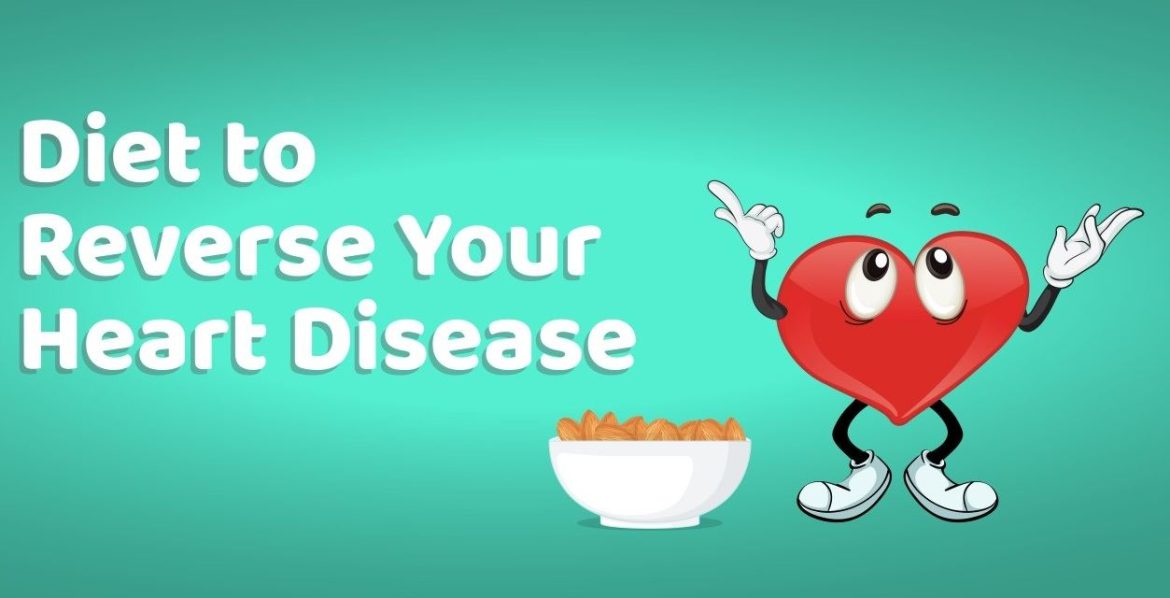Heart disease remains a leading cause of death worldwide, prompting significant interest in both medical and lifestyle interventions to manage and potentially reverse its progression. Among various lifestyle modifications, diet has emerged as a critical factor. This article delves into the potential of dietary changes to reverse heart disease, exploring scientific evidence, dietary approaches, and practical recommendations.
What Is Heart Disease?
Heart disease, or cardiovascular disease (CVD), encompasses a range of conditions affecting the heart and blood vessels.
These include coronary artery disease, heart failure, arrhythmias, and others. The primary cause of heart disease is atherosclerosis, a process where plaque builds up in the arteries, leading to reduced blood flow and increased risk of heart attacks and strokes.
see also: What Does Early Heart Failure Feel Like?
Risk Factors
The development of heart disease is influenced by numerous risk factors, both modifiable and non-modifiable. Non-modifiable factors include age, gender, and family history. Modifiable risk factors, on the other hand, include smoking, physical inactivity, unhealthy diet, obesity, high blood pressure, high cholesterol, and diabetes.
The Role of Diet in Heart Disease
Diet plays a significant role in the development and progression of heart disease. Poor dietary habits, such as high intake of saturated fats, trans fats, cholesterol, and refined sugars, contribute to the buildup of plaque in the arteries. Conversely, certain dietary patterns have been associated with reduced risk and even reversal of heart disease.
Scientific Evidence
Numerous studies have investigated the impact of diet on heart disease. Landmark studies such as the Lyon Diet Heart Study and the PREDIMED trial have demonstrated the benefits of specific dietary patterns in reducing cardiovascular events.
The Mediterranean Diet: Rich in fruits, vegetables, whole grains, legumes, nuts, and olive oil, the Mediterranean diet has been shown to reduce the risk of heart disease. The Lyon Diet Heart Study found that patients following a Mediterranean diet had a significant reduction in recurrent heart disease events compared to those on a standard Western diet.
The DASH Diet: The Dietary Approaches to Stop Hypertension (DASH) diet, which emphasizes fruits, vegetables, whole grains, and lean proteins while limiting salt, red meat, and sweets, has been proven to lower blood pressure and improve cholesterol levels, thereby reducing heart disease risk.
Plant-Based Diets: Diets that focus on plant-based foods and minimize animal products have shown promise in reversing heart disease.
Studies by Dr. Dean Ornish and Dr. Caldwell Esselstyn have demonstrated that intensive lifestyle changes, including a plant-based diet, can lead to regression of coronary artery disease.
Mechanisms of Dietary Impact
The beneficial effects of these diets on heart disease can be attributed to several mechanisms:
Lowering Cholesterol Levels: Diets low in saturated fats and cholesterol can reduce LDL (bad) cholesterol levels, which are a major contributor to plaque formation.
Reducing Inflammation: Certain foods, such as those rich in omega-3 fatty acids, antioxidants, and fiber, can reduce inflammation, a key factor in atherosclerosis.
Improving Endothelial Function: Endothelial cells line the blood vessels and play a crucial role in vascular health. Diets rich in nutrients like nitrates (found in leafy greens) and polyphenols (found in fruits and vegetables) can improve endothelial function.
Lowering Blood Pressure: Diets high in potassium, magnesium, and fiber, and low in sodium, can help lower blood pressure, a significant risk factor for heart disease.
Practical Dietary Recommendations
To harness the potential of diet in reversing heart disease, individuals should consider adopting the following dietary practices:
Increase Intake of Fruits and Vegetables: Aim for at least five servings of fruits and vegetables per day. These foods are rich in vitamins, minerals, antioxidants, and fiber.
Choose Whole Grains: Replace refined grains with whole grains such as brown rice, quinoa, and whole wheat. Whole grains are higher in fiber and nutrients.
Include Healthy Fats: Focus on healthy fats from sources like olive oil, avocados, nuts, and seeds. Limit intake of saturated fats and avoid trans fats.
Opt for Plant-Based Proteins: Incorporate more plant-based proteins such as beans, lentils, tofu, and tempeh. Limit red and processed meats.
Reduce Sodium Intake: Aim to consume less than 2,300 milligrams of sodium per day. Avoid processed foods high in salt and use herbs and spices for flavor.
Limit Added Sugars: Minimize consumption of sugary drinks, sweets, and processed foods high in added sugars.
Stay Hydrated: Drink plenty of water and limit sugary beverages and alcohol.
Conclusion
While reversing heart disease entirely may be challenging, substantial evidence supports that dietary changes can significantly improve heart health and, in some cases, reverse certain aspects of the disease. Adopting a heart-healthy diet, such as the Mediterranean, DASH, or plant-based diets, can lower cholesterol, reduce inflammation, improve endothelial function, and lower blood pressure. These changes can lead to a decreased risk of heart disease events and improved overall cardiovascular health.
As always, individuals should consult with healthcare professionals before making significant dietary changes, especially those with existing health conditions. By prioritizing a nutritious diet, individuals can take a proactive step towards better heart health and potentially reverse the course of heart disease.

